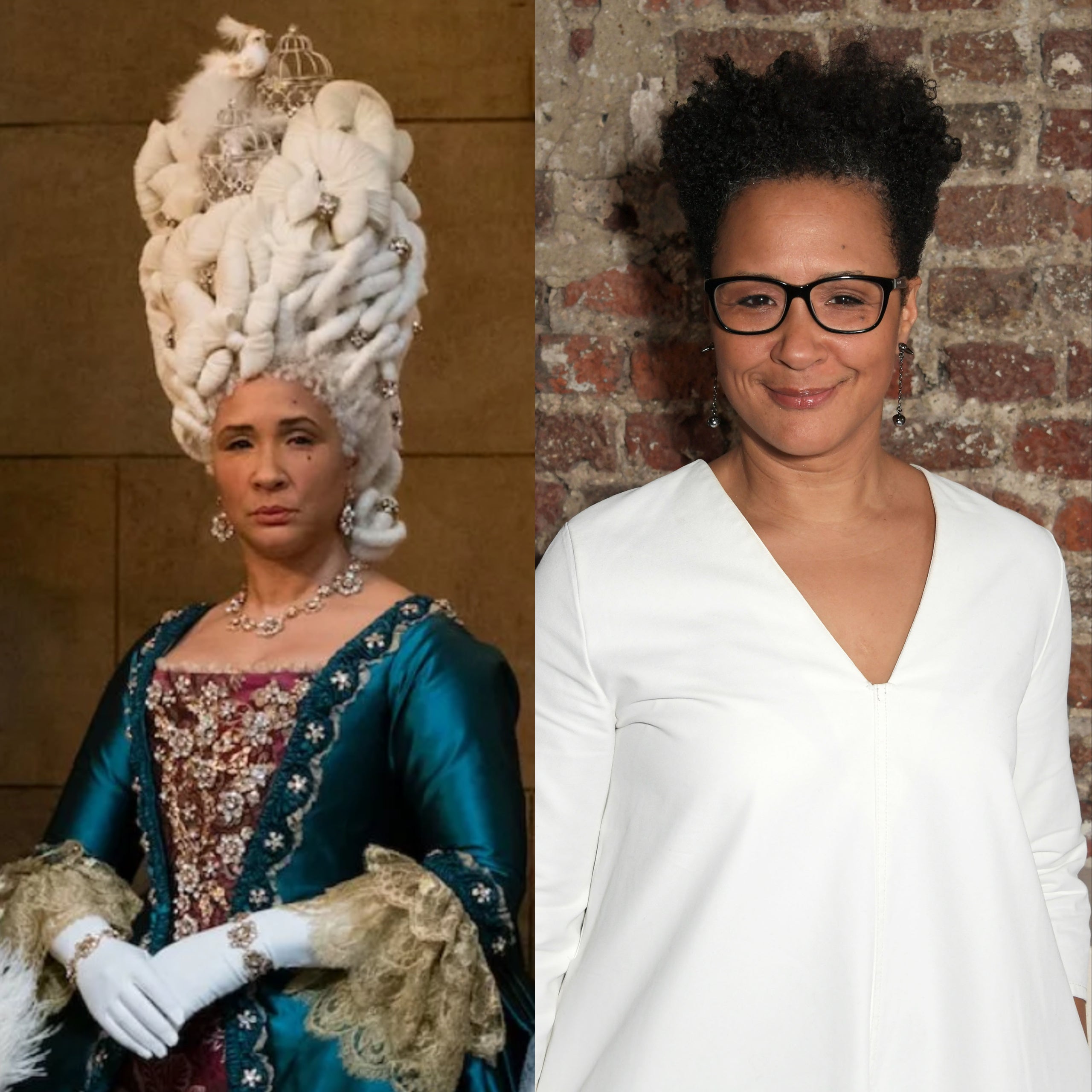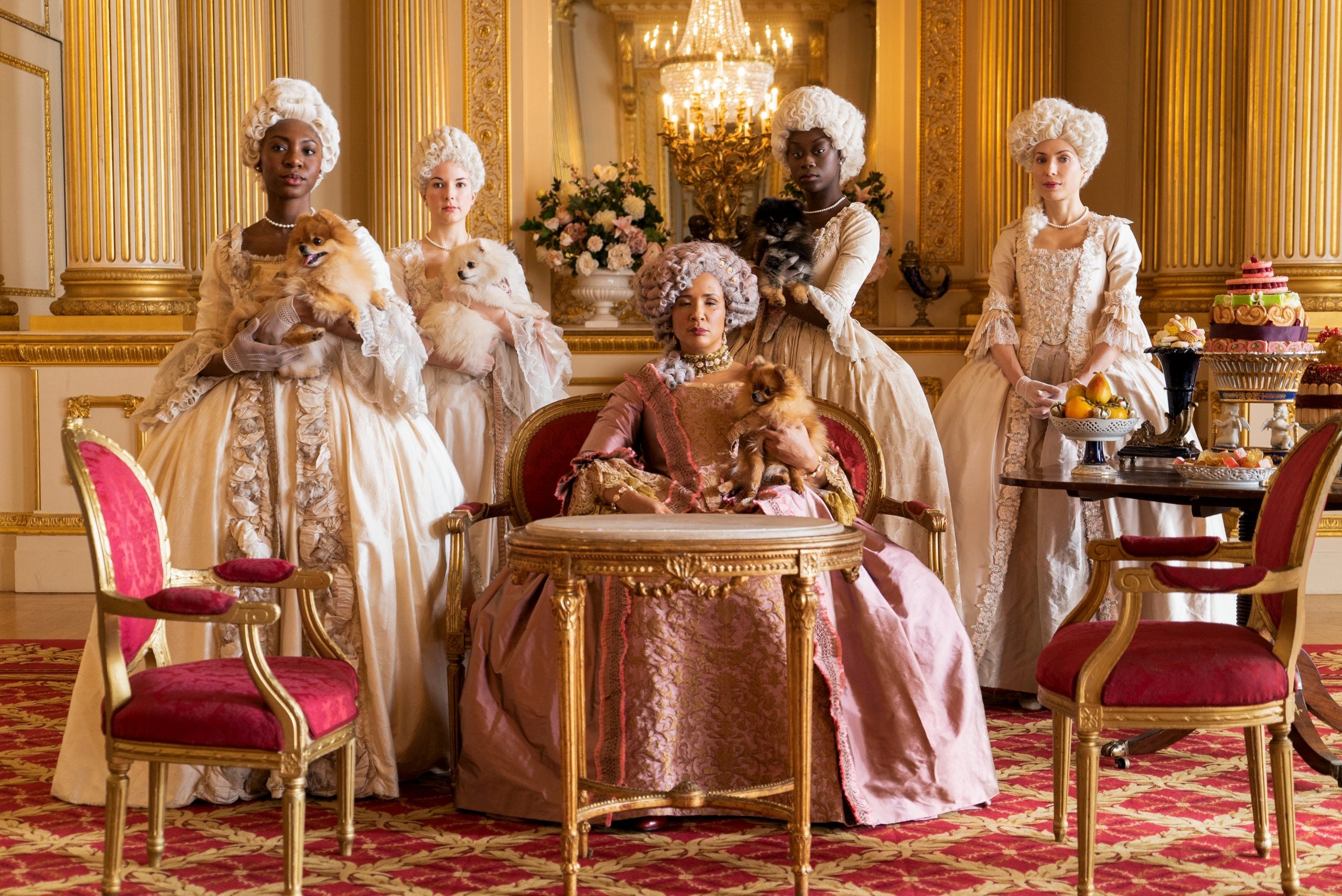
I’m going to be honest, I wasn’t expecting Bridgerton actress Golda Rosheuvel to be so warm and energetic during our Zoom interview in early January. I’m so used to seeing her stone-faced, donning the most intense RBF (resting b*&#h face) I’ve seen in awhile, I can actually say first-hand that she’s the polar opposite of who she plays on Netflix’s steaming hot series.
However, one similarity she does share with her on-screen character Queen Charlotte is her passion and conviction, something I witnessed during our laughter-filled 30-minutes with each other. We discussed her monumental role, being Black in television, and of course, those incredible wigs.
Much to my surprise, she actually does have a favorite look, and I’m pretty sure it’s your favorite as well.

What was it like playing such a powerful figure? One who up until Bridgerton, many didn’t know was of African descent?
Golda Rosheuvel: There were so many layers to Queen Charlotte, and being a Black queen was just one of them. She was navigating the love of her life dying as well. I wanted to create a well-rounded character, and a complex character. One who loves the gossip, loves the parties, loves the balls, loves being in charge of the hierarchy, but also has her finger on the pulse of society. However, behind closed doors, she’s dealing with and coping with what the love of her life [King George III] is going through.
What do you think playing Queen Charlotte did to further strengthen the notion that England has a history of Black monarchs?
Rosheuvel: I think having somebody of color at the top of the food chain enables us as artists and as a Black community. I think it’s really, really important because it expands and gives us the space and the area to breathe as human beings. It all becomes a positive talking point when discussing inclusivity. It gives space for people to go, ‘wow, I see myself, this is possible because it was possible right now. I think there was great empowerment and power in that for people of color.
How do you feel about the racist pushback the show received because of your presence?
Rosheuvel: This might be controversial, but I think it’s positive. You have to look at it from a positive point of view because all discussion is valid. As long as you don’t hurt anybody, discussion is good. That’s whether you win the debate or not, it’s important to engage a subject. Whether it’s me playing Queen Charlotte, or any other important subject that deals with the minority community. Discussion is always positive, even when it’s negative. Without those discussions, without those beliefs and thought processes, we won’t move forward. It’s always worth engaging in the debate of representation and inclusivity.
How has having Shonda Rhimes at the helm of the show contributed to its cultural importance?
Rosheuvel: It gives us a seat at the round table. I say round table, because if it’s round, you can see everybody’s face and you can hear everybody’s debate. You can hear everybody’s, query, love, joy, hatred, whatever that may be. And to have somebody like Shonda Rhimes at the head of the round table, for me as a Black actress, it’s incredible. It’s one of those things that we have talked about for so long, that we wanted to have these people, Black and Brown people, in the mix and at the top. Having at person like us at the top, then we’ll be able to have the space where our stories can be told. But not just told, these stories are being laid down accurately. You have people like Tyler Perry and Shonda Rhimes, and Kerry Washington who are collaborating and putting our stories down first and front on the table and saying, ‘let’s do this, let’s put our money into this because it’s a great story.’ That matters.
What was it like donning wigs that actually mimicked Black hair?
Rosheuvel: It was an incredible experience and also sometimes very emotional because I was 50 last year, and I’ve been in the business for quite a long time and never have I ever had conversations with makeup designers or wig designers that includes the texture of my hair and considered what my hair looks like. Marc and his team were really joyful in the fact that they were going to represent Black hair. It was incredible. It was such a joy and such a creative experience to wear those wigs. To think that this little white man was going away and creating these beautiful, extraordinary exquisite pieces for this Black actress who was playing the Queen of England. You can’t make this up.
It was revolutionary, I think. Nobody can say it can’t be done now. You know what I mean? That dialogue of there isn’t enough time, and there aren’t people out there that can do it, or they don’t understand, that’s gone out the window. The team and the cast and crew has proven that as wrong, it’s always possible.

We have to ask a difficult question, what’s your favorite wig?
Rosheuvel: That’s not a difficult question at all. I have two favorites actually. The one in the tea party scene, that wig is beautiful. I love that whole look actually it’s just divine. And then I love the natural one which is the darker look that cascades. Those two, for me, were brilliant.
How did you master that effortless pout and scowl, and the regal persona of Queen Charlotte?
Rosheuvel: I’m biracial, and my mother was white from England and my dad is South American. My entire career I’ve played, you know, “Black roles,” obviously. The industry has a way of pigeon-holing us. This is the first time that I wasn’t playing a role that didn’t completely revolve around me being Black. So for me, this is the first time been able to tap into my mother’s side. Do you know what I mean? That side of me that loves afternoon tea and scones with clotted cream and jam, that loves horse riding through the countryside. So when channeling Queen Charlotte, I thought about my mom. I don’t know whether my mum pouted, but definitely channeled her with great pride and honor.